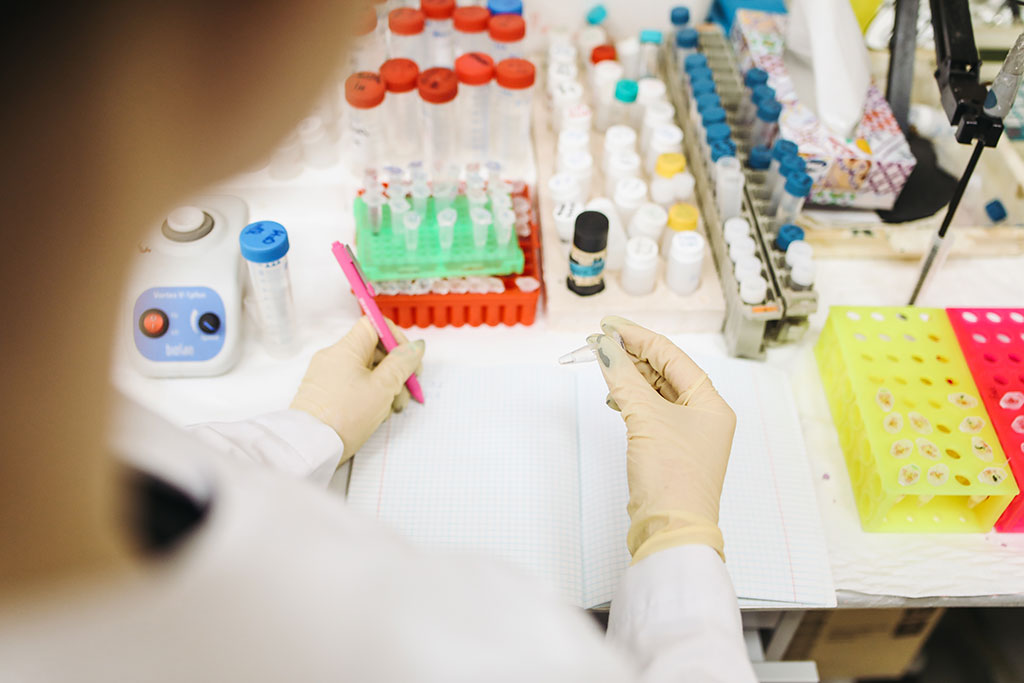New Test Detects Antibodies Responsible for Thromboses and Miscarriages
Posted on 02 Nov 2022
Antiphospholipid syndrome (APS) is an auto-immune disease that can cause miscarriages or the death of the fetus. Antibodies turn against certain proteins (phospholipids, fatty substances that are essential for the organism’s survival) located on the surface of cells or circulating in the blood. These antibodies are called antiphospholipids. While one study estimates that the antiphospholipids are responsible for an APS in 50 to 100 people out of 100 000, experts put the prevalence at 1 to 5% of the global population. For every man affected, four women are affected. This auto-immunity creates clots that are responsible for thromboses and can disrupt the pregnancy. At least 15% of recurring miscarriages are due to a case of APS which is now recognized as the most easily avoidable cause of miscarriages.
While indirect treatments exist (chronic taking of anticoagulants) for APS, a reliable screening test would take effect before any dramatic consequences occur. The limited reliability of the current screening tests means that diagnostics cannot be performed before the first clinical signs appear. Now, researchers at the Geneva University Hospitals (HUG, Geneva, Switzerland) have created the best possible target molecule for the antibodies responsible for APS, enabling a new screening test to be developed. The new test is a hundred times finer, making the sensibility rise to 85% which is sufficient to be able to offer a rapid test, like the antigen tests for COVID-19. It is mainly aimed at screening for women wanting a pregnancy or hormonal contraception, and will make it possible to prescribe treatments or appropriate care paths.

There is still no proper understanding of the origins of APS, aside from knowing that, for unknown reasons, antiphospholipids are present in the blood. Immunologists also know one of its targets: a circulating glycoprotein known as Beta2GP1. The strategy used by the researchers to develop the new diagnostic test was to identify, as specifically as possible, the region of the Beta2GP1 that is targeted by the antiphospholipids. Their idea was to imitate the properties of this region by creating a fictitious molecule that was as similar as possible to the antiphospholipids, i.e. the quest for the perfect target for these antibodies.
The team set about analyzing 600 molecules (peptides with different sequences of amino acids) showing similarities with the region of the Beta-2GP1 in the presence of antiphospholipids stemming from male and female patients. A molecule with 60 times more affinity for antiphospholipids than the target region of the Beta-2GP1 was thus found. A synthetic antibody directed against the Beta-2GP1 was then created in the laboratory, thanks to this molecule. Allied to the ELISA biochemical analysis technique, it allows for a quantitative dosage and a very useful standardization of measures, synonymous with a high degree of reliability. A test for research is already available and a clinical study in humans is in progress. If it succeeds, the expectation is that it will be put on the market in the near future. A rapid screening kit is currently being designed.
The current tests have only 40% sensibility for antiphospholipids, “which amounts to a coin-toss,” noted Karim Brandt, a former member of the scientific staff at the UNIGE’s Medicine Faculty and Director of Science at Endotelix, who is responsible for the study. “That’s why the tests currently need to be correlated with clinical facts in order for an accurate diagnosis of APS to be made. It’s a problematic situation given the seriousness of the clinical symptoms.”
“Since the sequence of amino acids has a high capacity for interaction with antiphospholipids, it could also serve as a direct inhibitor via monthly or bimonthly injections in the guise of treatment,” Karim Brandt concluded.
Related Links:
HUG














